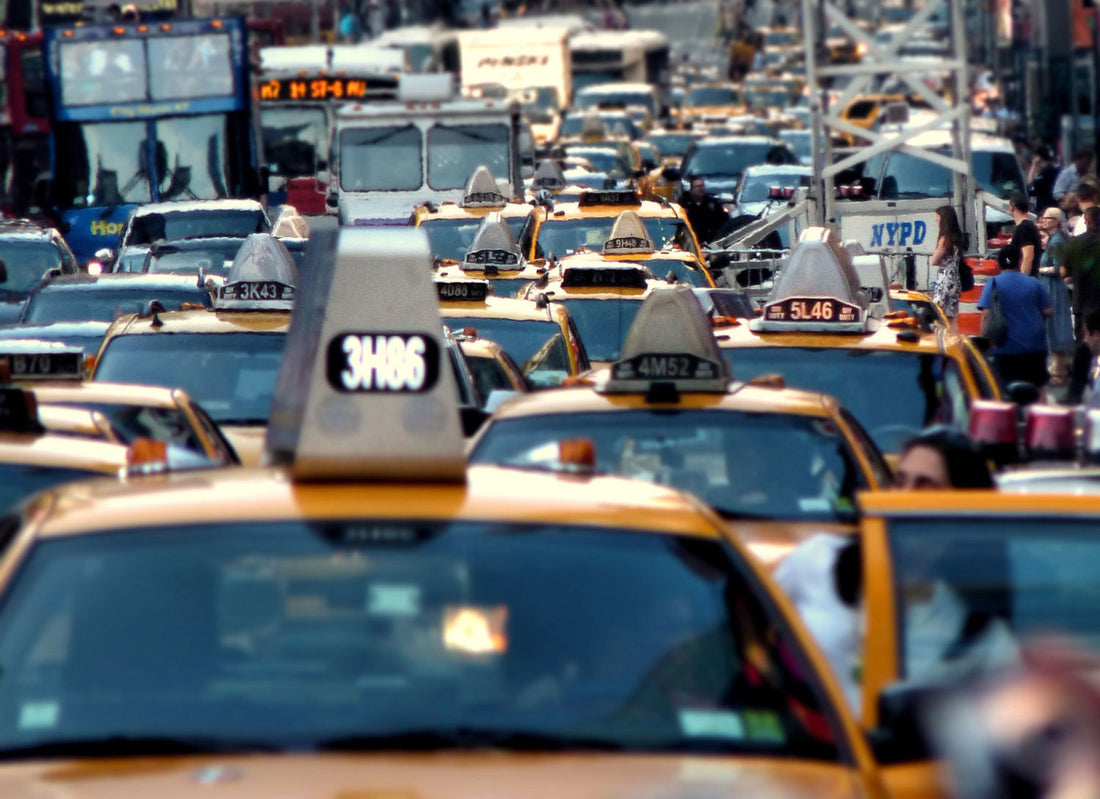We make 51 billion tons of greenhouse gases per year.
If that number seems crazy high, that’s because it is.
As you’ve likely heard, countries including the United States, Canada, Japan, Australia, New Zealand, and the European Union as a whole have committed to net zero emissions by 2050.
What this means is if we make 51 billion tons of greenhouse gases in a year, we also will remove 51 billion tons per year, or prevent some of those greenhouse gases from being released in the first place.
Worldwide, transportation emissions account for 24% of total emission.
But in the US, transportation is the highest source of greenhouse gas emissions, accounting for almost 30%.
And 60% of that is from passenger vehicles like cars, trucks and SUVs.
The key takeaway is we will all need to work together -- reaching net zero will take a massive effort by government, policy makers, industry, and individuals like you and me.
Here are 5 ways we can cut transportation emissions.
One is to do less of it. Less driving, flying, and shipping. More walking, biking and public transit.
Here’s a hack: do you have a subscription for vitamins, coffee, razors, green smoothies or something else? Instead of getting 1 pack every month, try getting 2 packs every 2 months or 4 packs every 4 months. By cutting down your shipments, you reduce your transportation emissions and carbon footprint.
A second way is to use fewer carbon-heavy materials when we make cars and trucks. Every vehicle is made from materials like steel and plastic.
Guess what? Making steel and plastic emits greenhouse gases. The less of these materials we need in our cars, the lower their carbon footprints will be.
Side note – plastic gets a bad wrap for good reason. Single use plastics are quite literally killing our oceans. However, the use of plastic in cars to replace steel is a great example of how plastic has benefited the environment. It’s hard to believe, I know.
You see, plastic is far lighter than steel, so cars with some plastic components use less fuel compare with their all-steel predecessors. Using plastic in cars reduces our fuel costs, and also our transportation emissions. That’s a good thing.
A third way to reduce transportation emissions is to use fuel more efficiently. This one gets a lot of attention. We’ve made progress here because law makers have forced auto makers to innovate and engineer more efficient engines for cars and trucks.
One problem is the standards don’t go far enough. For example, there are standards for international shipping and air travel, but they are basically unenforceable. Which country will enforce emission standards for a cargo ship in the middle of the Pacific Ocean?
It’s important to note that making more efficient gas engines is a step in the right direction, but it won’t get us to zero because we are still burning fossil fuels.
The fourth and most effective way we can move to zero emissions is by switching to electric vehicles and alternative or bio fuels. Both of these come with a “green premium”, meaning they are better for the environment, and they also cost more than the fossil fuel versions.
Want to know more about alternative fuels, aka bio fuels? Keep an eye out for a future blog post on this.
The fifth way is to choose products that weigh less.
This is the reason Weightless exists.
See how we got our name: Weightless… as in weigh less.
As we talked about above with plastic being a good replacement in cars for steel, the lighter something is, the less fuel gets burned transporting it.
Liquid laundry detergents are 75% water. Not only is that a waste of water, and there’s a single-use plastic jug, we are making way too many transportation emissions when we ship all that heavy water from the factories to the stores to our homes.
So we took out the water and kept in the clean.
If you’d like to reduce your carbon footprint and plastic-use, check out Weightless Eco-Strips.
In honor of Earth Day, you’ll save up to 30% (ends 4/23/2023).
As always, if you have any comments or feedback on these ways to reduce our transportation emissions, we’d love to hear from you. All feedback welcome.
Until next time,
Jamil al Jabri
Founder, Weightless Clean


1 comment
good pointers